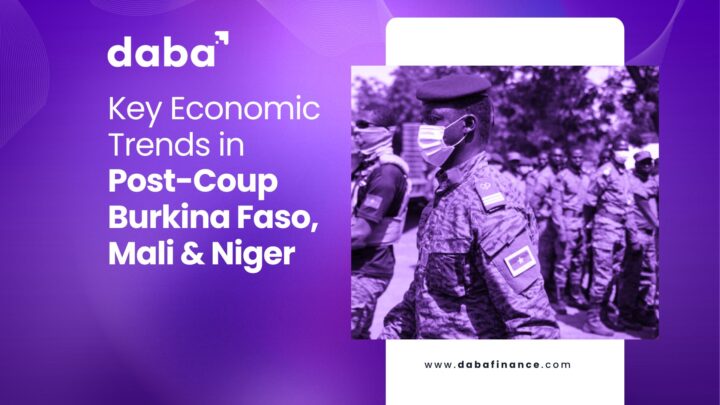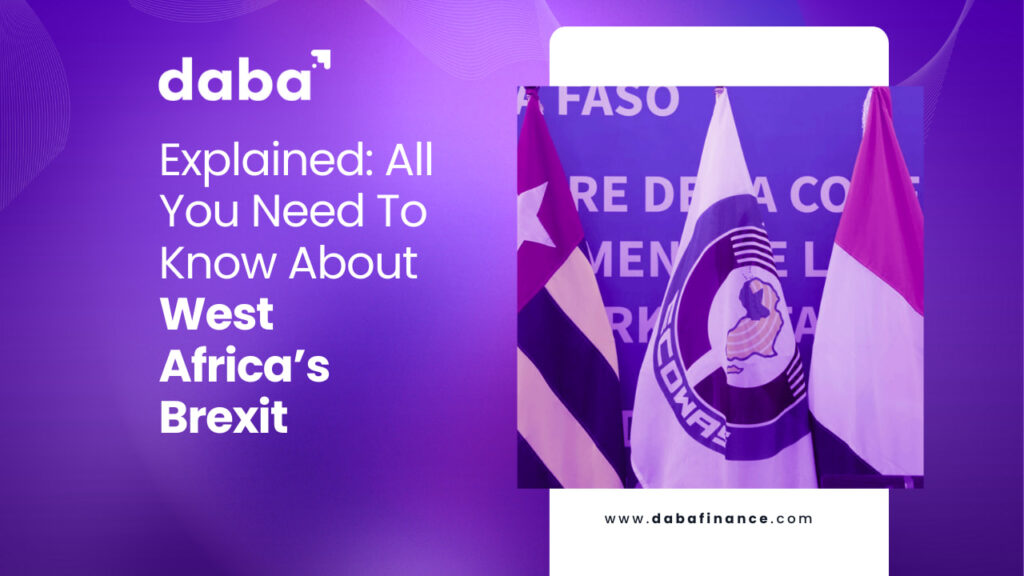Key Economic Trends in Post-Coup Burkina Faso, Mali and Niger
5 min Read June 8, 2024 at 12:14 PM UTC

Burkina Faso, Mali, and Niger, Sahel nations bound by geography and shared struggles, have all witnessed military takeovers in recent years.
Public frustration with corruption, insecurity, and the perceived ineffectiveness of civilian governments fueled these coups. However, the economic impact of these political upheavals remains a complex and evolving story.
According to the International Monetary Fund’s (IMF) World Economic Outlook, these nations outperformed the average growth for sub-Saharan Africa, which stood at 3.3% for 2023.
This growth persisted despite ECOWAS sanctions, particularly in Niger, driven by significant economic moves made by the new military regimes. We briefly explore major economic trends, events, outlook, and emerging investment opportunities in each economy.
Mali’s Coup and Mining Policy Shifts
In August 2020, Mali experienced a coup led by Col. Assimi Goita. In 2023, Goita’s government introduced a new mining code allowing the state to acquire up to a 30% stake in new mining projects.
This move aims to increase revenues from Mali’s mining sector, especially given its position as Africa’s second-largest gold producer, with over 101 tonnes of gold extracted in 2022, according to the World Gold Council. Authorities expect the new mining policies to boost annual mining revenues by around $822 million.
Beyond gold, Mali also has underexploited deposits of iron, manganese, and lithium. Mali’s economy grew by 4.5% in 2023 and is expected to maintain this trajectory, with the IMF forecasting growth of 4% this year.
The new mining policies present significant investment potential and leveraging platforms like Daba offers investors a chance to tap into emerging opportunities in the sector.
Burkina Faso’s Agricultural Drives After Two Coups
Burkina Faso experienced coups in January and September 2022, with Ibrahim Traore eventually taking over as interim president.
In 2023, Traore’s transitional government increased support for the agricultural sector, which accounts for 20% of GDP and employs 60% of the population.
New economic initiatives include around $820 million for the development of eight strategic sectors, $330 million to combat food insecurity, and $36 million to boost cereal production.
Despite the persistent security crisis, Burkina Faso demonstrates economic resilience. GDP growth was estimated at 4.4% in 2023, up from 1.5% in 2022, and is expected to reach 5.5% in 2024, according to IMF projections.
With substantial funding directed towards various sectors, Burkina Faso offers fertile ground for investments.
One notable opportunity is Onatel Burkina Faso, the country’s second-largest telecom operator by subscriber count, with a market share of 42.91% as of the third quarter of 2023.
Listed on the BRVM and available to investors on the Daba app, Onatel is well-positioned for growth as the nation’s telecom industry expands and contributes to Burkina Faso’s economic stability and development.
Also Read: Ivory Coast Rises: Economic Growth, Oil Discoveries, and a Booming Stock Market
Niger’s Oil Pipeline Debut
In July 2023, Niger’s military officers overthrew the elected president, triggering regional sanctions. In response, the new junta sought economic opportunities outside Western influence.
In November 2023, Niger commissioned a $6 billion pipeline linking its southeastern oilfields to a port in Benin. The 2,000km pipeline, with an export capacity of 90,000 barrels per day, offers Niger a vital new revenue stream.
Authorities believe oil exports could eventually account for 25% of Niger’s GDP and contribute half of the country’s tax revenues. This project is expected to offset the reduction in financial aid from Western partners.
Niger’s economy, which slowed to 4.1% growth in 2023, is forecast to recover significantly with 10.4% growth in 2024.
The new oil pipeline and burgeoning oil industry represent a significant economic milestone for Niger, one which investors should be looking to capitalize on.
The ECOWAS Exit and Russian Ties
ECOWAS imposed sanctions on the coup leaders, including asset freezes and travel bans, exacerbating economic hardships for ordinary citizens.
In January 2024, Burkina Faso, Mali, and Niger announced their withdrawal from ECOWAS, set for January 2025, severing vital trade and economic partnerships.
Concurrently, they have deepened cooperation with Russia, despite allegations of human rights abuses by Russian mercenaries.
Also Read: Explained: All You Need to Know About West Africa’s Brexit
Debate on the West African Franc (CFA)
Reports in February 2024 indicated a potential move away from the West African franc (CFA) by the three military-led economies.
Originally created by France in 1945, the CFA has been seen as a mechanism for promoting monetary stability. However, anti-French sentiments have grown, especially after recent coups.
Supporters of the CFA argue that being pegged to the euro buffers against inflation, while critics push for a new currency to sever economic ties with France.

The Economic Future of Burkina Faso, Mali and Niger
The economic future of the military-led Sahel nations remains precarious.
While these nations focus on natural resources and agriculture, challenges such as domestic insecurity, restoring fiscal health, and potential economic fallout from exiting ECOWAS trade agreements loom large.
The short-term outlook is clouded, but domestic reforms and diversification efforts offer a glimmer of hope.
Investing in these emerging markets presents both challenges and opportunities. By leveraging our expertise and platform, investors can navigate these complexities and capitalize on the potential returns.
For those interested in exploring investment opportunities in these dynamic regions, Daba stands ready to provide the necessary tools, insights, and support to help you make informed and profitable investment decisions.
Contact us today to learn more about how you can be part of their economic transformation.
This material has been presented for informational and educational purposes only. The views expressed in the articles above are generalized and may not be appropriate for all investors. The information contained in this article should not be construed as, and may not be used in connection with, an offer to sell, or a solicitation of an offer to buy or hold, an interest in any security or investment product. There is no guarantee that past performance will recur or result in a positive outcome. Carefully consider your financial situation, including investment objective, time horizon, risk tolerance, and fees prior to making any investment decisions. No level of diversification or asset allocation can ensure profits or guarantee against losses. Articles do not reflect the views of DABA ADVISORS LLC and do not provide investment advice to Daba’s clients. Daba is not engaged in rendering tax, legal or accounting advice. Please consult a qualified professional for this type of service.

Next Frontier
Stay up to date on major news and events in African markets. Delivered weekly.
Pulse54
UDeep-dives into what’s old and new in Africa’s investment landscape. Delivered twice monthly.
Events
Sign up to stay informed about our regular webinars, product launches, and exhibitions.

